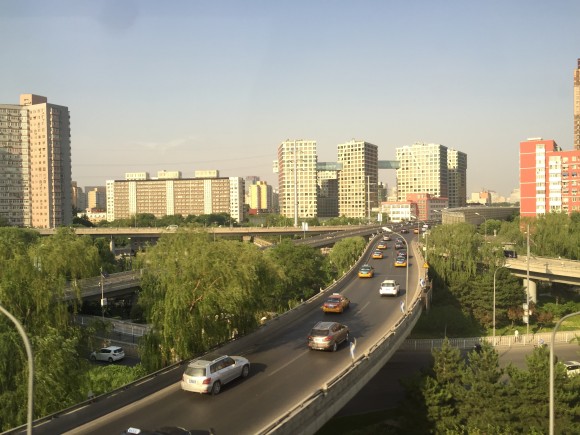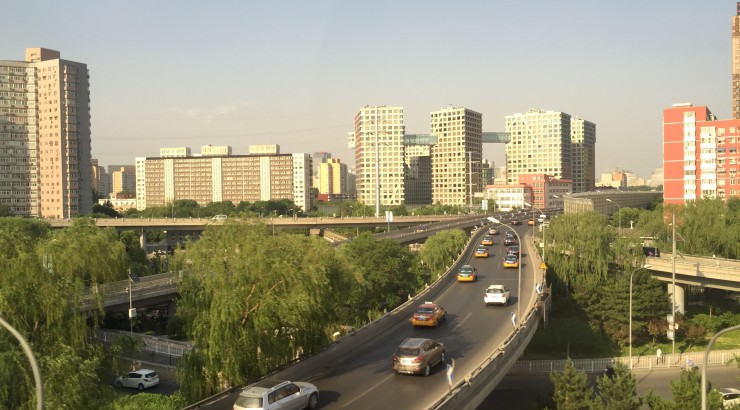Course in China Teaches us about International Business
June 30, 2015
A group of Argyros School students visited Beijing to finish coursework for the International Business Travel Course to China. After an 11-hour flight, this was our first view of the city from the bus on the way to the hotel.

I was excited to see the fact that China’s growth was very apparent throughout Beijing. Just from the bus ride to the hotel, I saw so many construction projects underway, whether they were building new architecture or repairing existing structures. I have never seen so much construction being done in one city! In
class
, we’ve discussed China’s high amount of investment and savings rate as the main contributor to the country’s high economic growth. It was definitely incredible to witness first hand such rapid growth in this one city.
One interesting fact that our tour guide told us was that the traffic in Beijing is so bad that they have regulations on which cars are allowed on the road depending one’s license plate number. For example, if someone’s license plate ended in a 1 or 6, they aren’t allowed to drive on Mondays. They also assign license plates similar to a lottery process, which created a market for license plates. They are now worth about 2000 yuan, or $333. What shocked me the most was that the government actually has the ability to implement and regulate these policies.
At night, a group of us were hungry after the long flight, so we walked around the city looking for something to eat. It was strange for us because the locals just stared at our group of foreigners walking around. I assumed that as a tourist destination, Beijing locals would be more comfortable about foreigners, but I was wrong.
Within the first few hours of arriving in Beijing, I observed how social and cultural differences were impacted by government policies, and I also got a first glimpse of their impressive economics growth.
This travel part of the
BUS 494
class took place from May 21 to May 31. The broad objective of the course was to develop an understanding of how economic and financial institutions, business organizations and economic policy are rooted in cultural and political factors. We compared bank and financial systems, monetary and exchange rate policies, governance structures in corporations and trade policy in China, the US and other countries and link them to politics and culture. The ultimate objective is to enable students to interact with Chinese businesses, banks and public authorities with greater knowledge of how business decisions are made and where conflicting viewpoints can arise.
